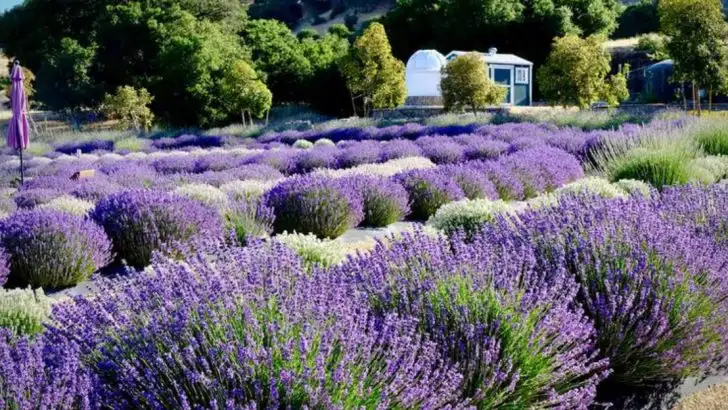You can have butterflies and backyard peace—yes, even in mosquito season. Forget citronella candles and sticky bug zappers. The real secret weapon? Plants that charm the bees while giving mosquitoes the cold shoulder. Think lavender—buzzing with bees, loathed by pests. Or lemon balm—sweet to pollinators, irritating to biters. Even marigolds pull double duty, luring ladybugs while sending skeeters packing. These 13 overachievers turn your garden into a pollinator paradise and a no-fly zone for the bloodsuckers. They’re beautiful, they’re fragrant, and they do more than just sit there looking pretty. No chemicals. No swatting. Just smart planting. So pull on your gloves and pick your anti-mosquito MVPs. Your garden can buzz with life—without driving you insane.
Lavender
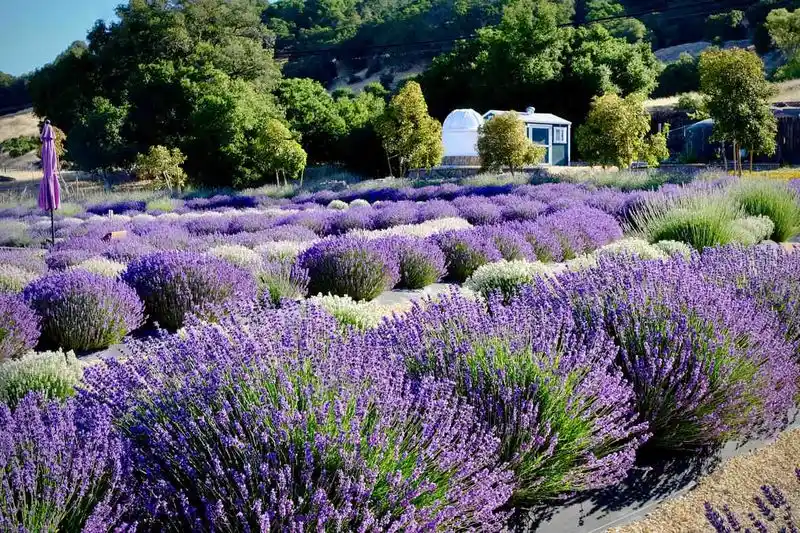
Lavender stands tall as a garden favorite, known for its enchanting fragrance. This aromatic herb not only attracts bees and butterflies but also helps keep mosquitoes at bay. Lavender’s calming scent is a natural mosquito repellent, adding a gentle allure to gardens. Its silvery foliage creates an elegant backdrop to its vibrant blooms. The plant also thrives in sunny spots, making it a low-maintenance choice. Did you know? Lavender’s essential oil has been used for centuries in perfumes and aromatherapy, offering a scent that’s both soothing and practical.
Marigold
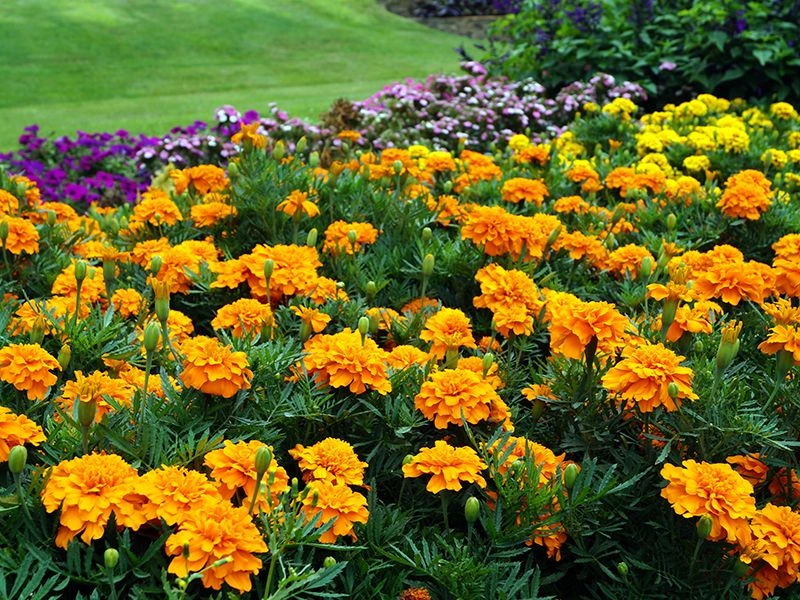
Marigolds bring a splash of brightness to any garden. Their vivid flowers are not just decorative; they are also powerful mosquito deterrents. Marigolds emit a distinctive scent that mosquitoes dislike, making them a natural choice for pest control. These flowers are easy to grow and can thrive in a variety of soil types. Besides repelling mosquitoes, marigolds attract beneficial insects like ladybugs, which prey on garden pests. Historically, marigolds were used in ceremonial events, symbolizing warmth and creativity.
Basil
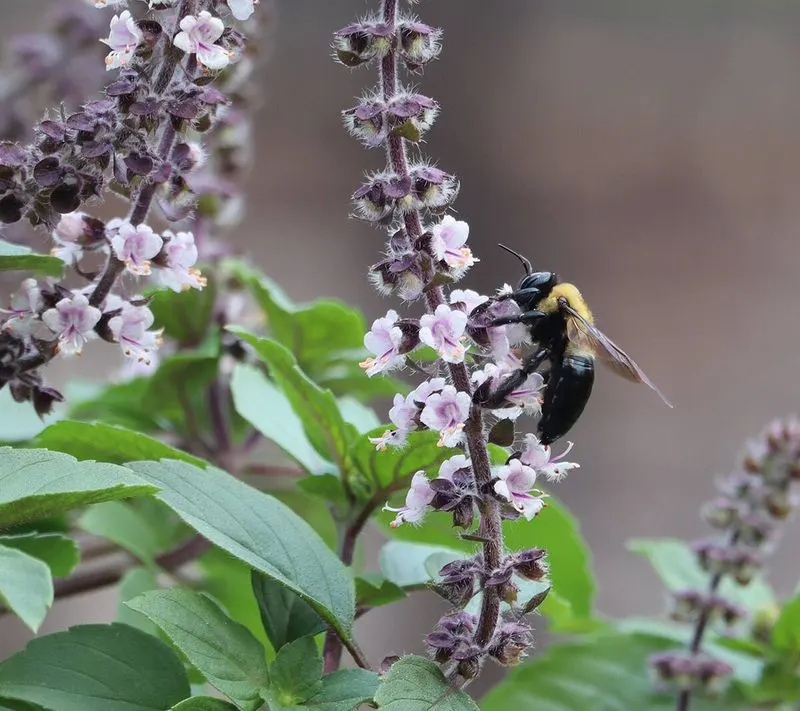
Basil is not just for the kitchen; it’s a powerhouse in the garden too. Known for its culinary uses, basil’s strong aroma is a natural mosquito repellent. This herb attracts pollinators such as bees and butterflies while keeping mosquitoes at bay. Basil thrives in warm climates and requires well-drained soil, making it an easy plant to cultivate. Its lush green leaves are not only aromatic but also add a touch of freshness to any garden setup. Fun fact: In ancient times, basil was considered a symbol of love in Italy.
Catnip
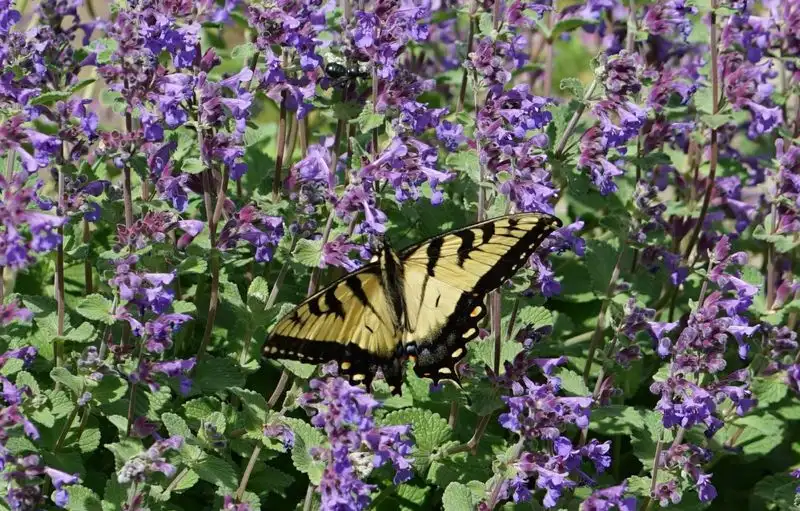
Catnip is famous for its feline appeal, but did you know it’s also a mosquito’s nemesis? This plant contains nepetalactone, which is highly effective in repelling mosquitoes. Catnip attracts pollinators, including bees and butterflies, creating a lively garden ecosystem. The plant is easy to grow and can become quite bushy, making it a great filler for empty garden spaces. Beyond its mosquito-repellent qualities, catnip is often used in herbal teas for its calming effects. Fun fact: Catnip can make cats go wild with excitement due to its intoxicating scent!
Mint
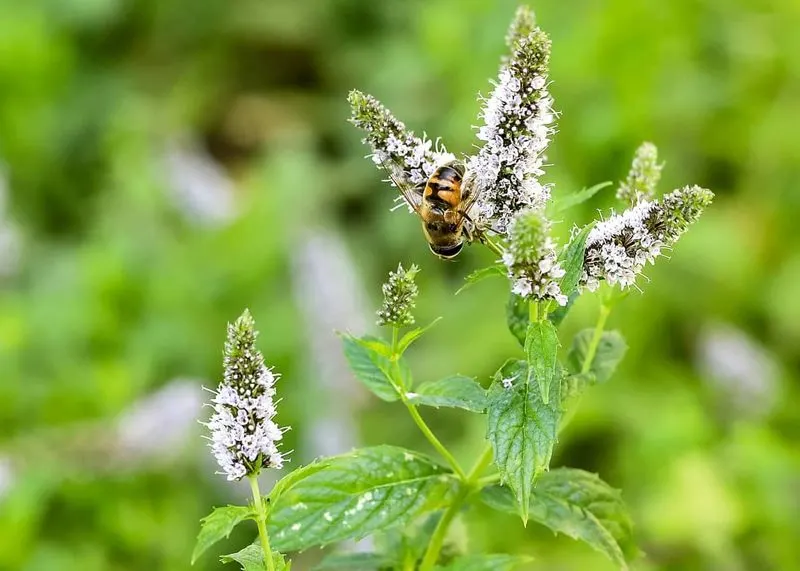
Mint’s refreshing scent isn’t just delightful; it also serves as a natural mosquito repellent. This versatile herb attracts a variety of pollinators, from bees to butterflies, making it a valuable garden ally. Mint is known for its vigorous growth and can spread rapidly, so it’s best contained in pots. Its aromatic leaves offer culinary uses, perfect for teas and garnishes, while also deterring mosquitoes. Historically, mint has been used for medicinal purposes and symbolizes hospitality in many cultures. Its invigorating aroma is a garden’s breath of fresh air.
Rosemary
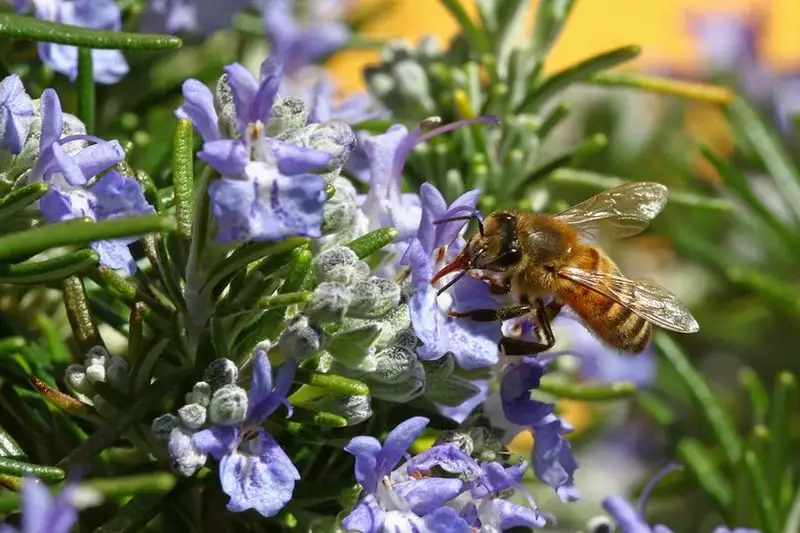
Rosemary, with its aromatic leaves and blue flowers, is a garden staple. This herb is revered for its culinary and medicinal properties, but it also serves as a mosquito repellent. Rosemary attracts pollinators like bees, enhancing the garden’s vibrancy. It thrives in sunny spots and well-drained soil, offering an evergreen presence throughout the year. Beyond its garden benefits, rosemary symbolizes remembrance and has been used in cultural ceremonies. Did you know? The ancient Egyptians used rosemary as a token of love and loyalty.
Lemon Balm
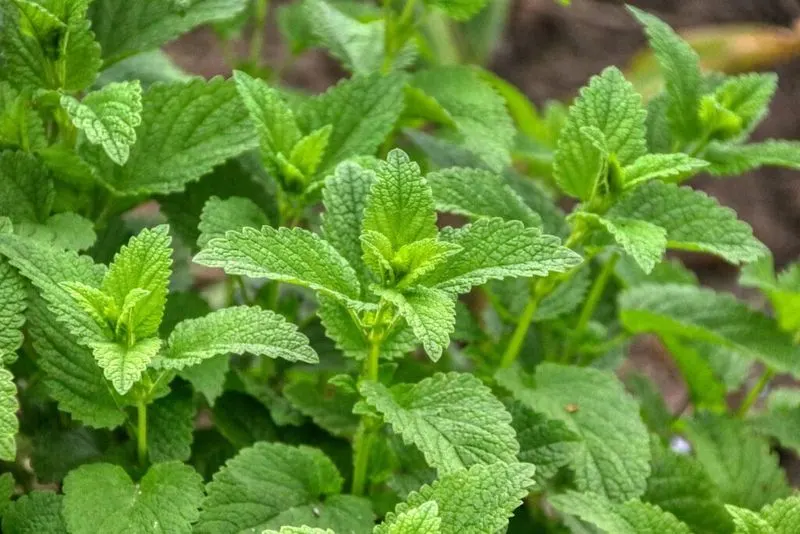
Lemon balm offers a citrusy scent that is both refreshing and effective against mosquitoes. This herb attracts pollinators, turning gardens into buzzing havens. Its leafy greens are perfect for creating a lush garden look. Lemon balm grows well in partial shade and can be used in teas and salads. The plant’s calming scent has been cherished in aromatherapy for its soothing properties. Fun fact: Lemon balm was historically used to uplift spirits and chase away melancholy. Its vibrant foliage and invigorating aroma make it a garden favorite.
Petunia
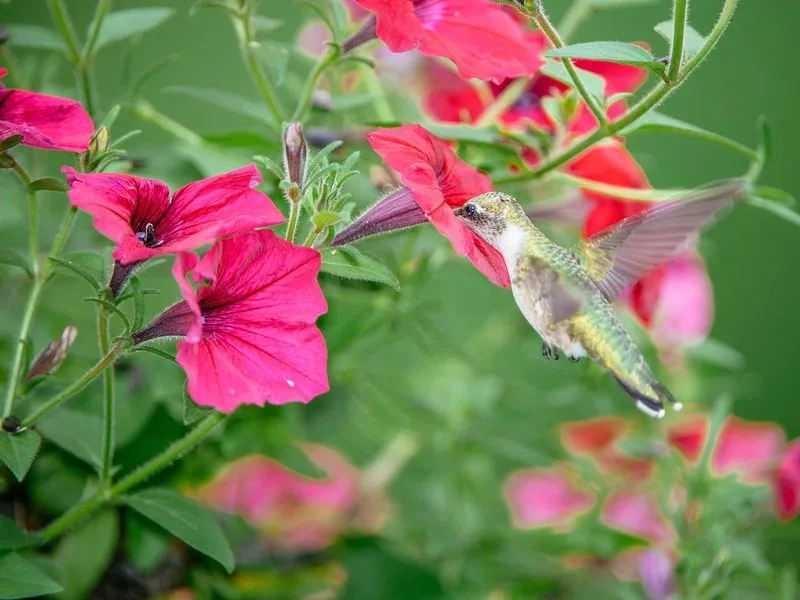
Petunias are a gardener’s delight, known for their vibrant blooms and easy care. These flowers emit a scent that mosquitoes find unappealing, serving as a natural deterrent. Petunias attract pollinators like hummingbirds and bees, making them a lively addition to gardens. Available in various colors, they brighten up any space with their cheerful presence. Petunias are versatile, thriving in both pots and garden beds. Did you know? Petunias are native to South America and have been cultivated for their beauty and fragrance since the 19th century.
Sage
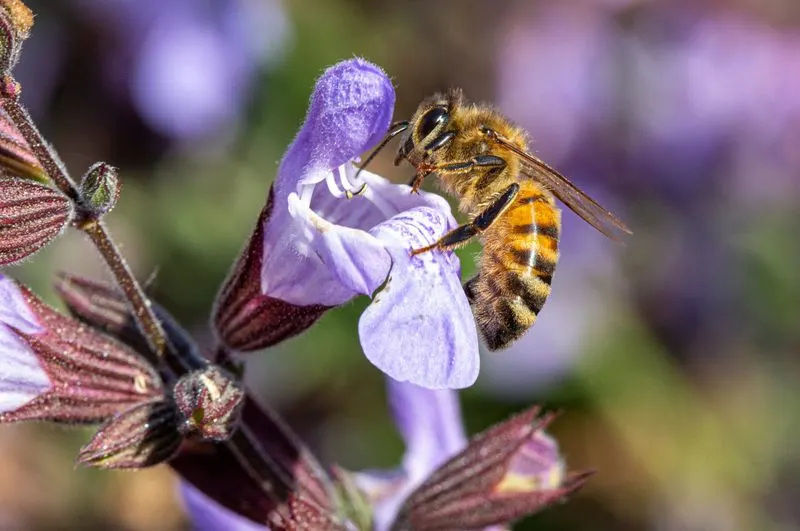
Sage is a versatile herb that offers more than just culinary uses. Known for its earthy aroma, sage repels mosquitoes and attracts beneficial insects. The plant’s purple flowers add a touch of elegance to gardens. Sage thrives in sunny, well-drained areas and requires minimal care. Its leaves are used in cooking and traditional medicine, valued for their antibacterial properties. Fun fact: Sage has been considered a symbol of wisdom and longevity in various cultures. Its fragrant foliage and vivid blooms make it a prized garden addition.
Thyme
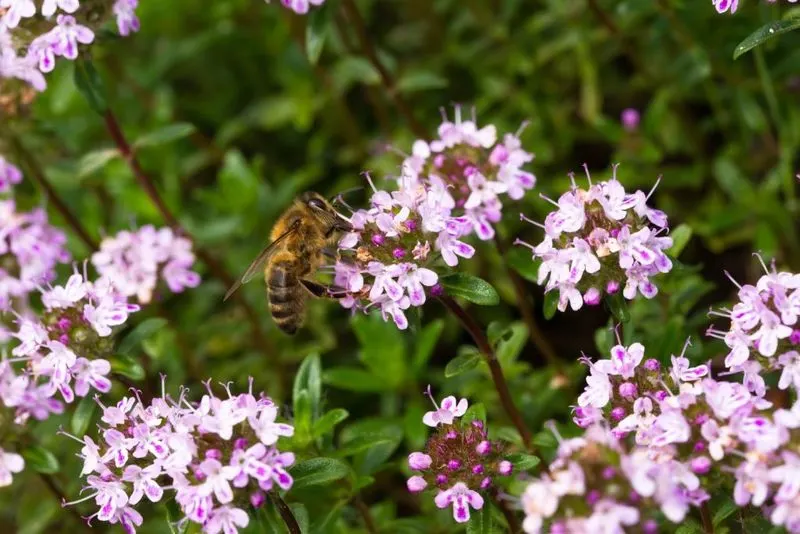
Thyme is a small herb with a big impact. Its aromatic leaves are effective in repelling mosquitoes, while the tiny flowers attract pollinators. Thyme is drought-resistant, making it a hardy choice for gardens. This herb thrives in sunny spots and can grow in rocky soil, offering versatility in garden design. Its leaves are used in cooking, adding flavor to dishes. Historically, thyme was used in ancient rituals and symbolized courage. Its resilience and aromatic qualities make it a must-have for garden enthusiasts seeking both beauty and functionality.
Bee Balm
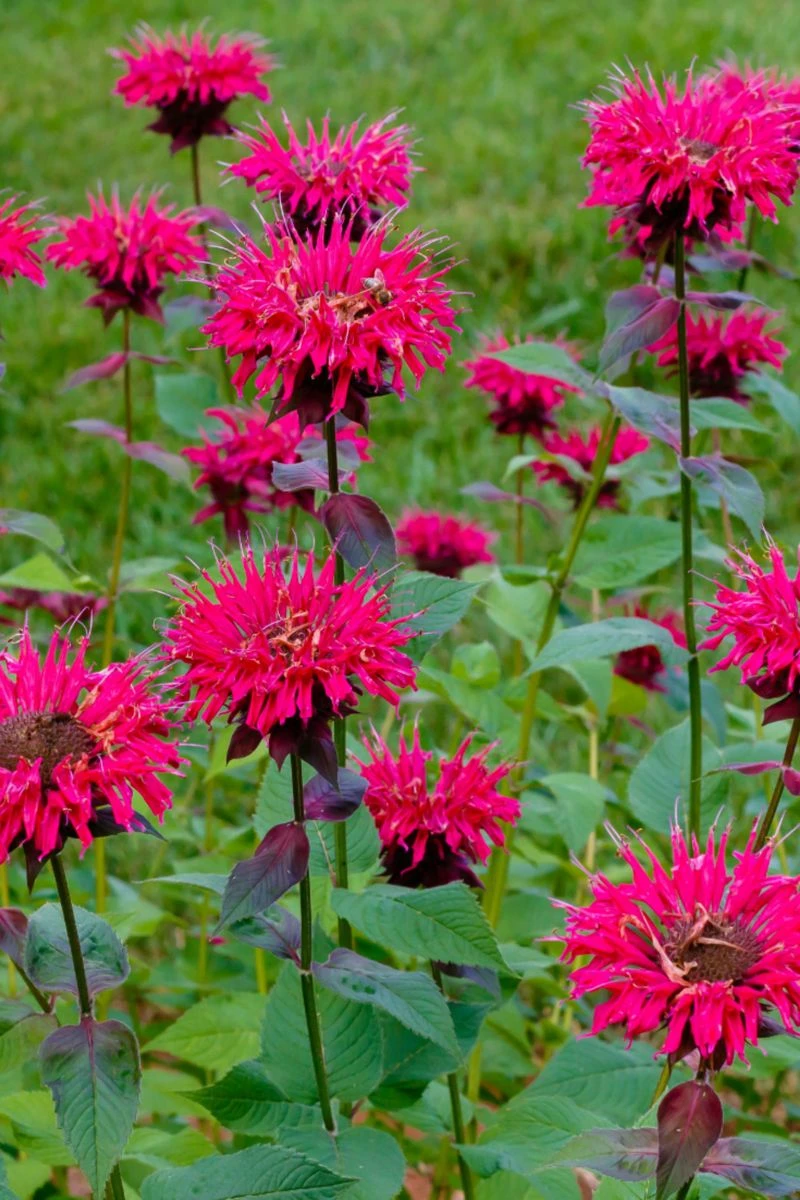
Bee balm, with its vibrant blooms and minty aroma, is a beacon for pollinators. This plant not only draws beneficial insects like bees and butterflies but also helps deter mosquitoes. Bee balm is easy to grow and thrives in sunny gardens, adding height and color with its striking flowers. Its leaves are used in herbal teas, offering a refreshing taste. Fun fact: Bee balm is native to North America and was traditionally used by Native Americans for its medicinal properties. Its presence in gardens is both decorative and practical.
Garlic
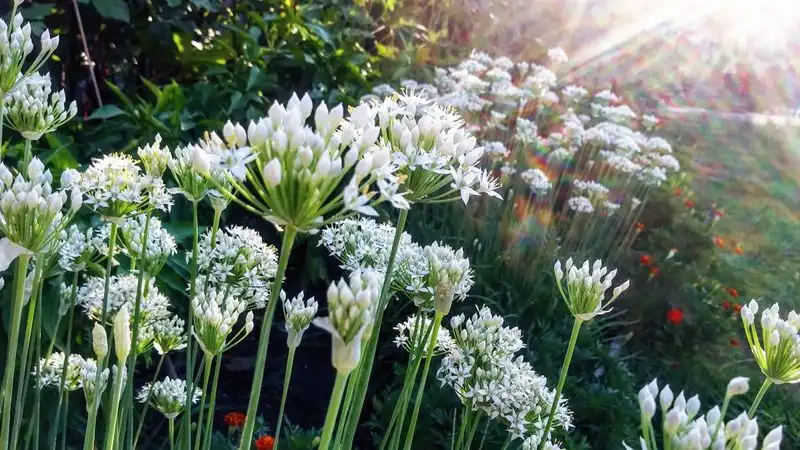
Garlic’s pungent aroma is well-known for its mosquito-repelling properties. This plant attracts pollinators while keeping unwanted insects away. Garlic is easy to grow and can be planted alongside other vegetables to enhance garden health. Its cloves are not only used in cooking but also valued for their medicinal benefits, such as boosting immunity. Historically, garlic was used to ward off evil spirits and is a symbol of protection. The combination of its practical uses and garden benefits makes garlic a versatile choice for any gardener.
Allium
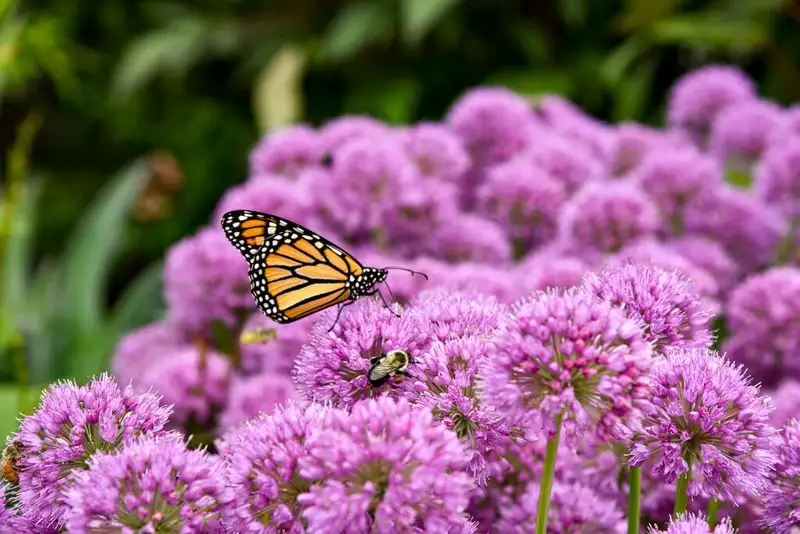
Allium, with its spherical blooms, is a striking addition to gardens. Known for its onion-like scent, allium effectively deters mosquitoes. This plant attracts pollinators and adds architectural interest with its tall flower stalks. Allium thrives in sunny, well-drained soil, requiring minimal maintenance. The plant’s unique appearance and mosquito-repelling qualities make it a garden favorite. Did you know? Allium flowers are related to onions and garlic, sharing their repellent properties. Their bold presence and beneficial attributes make them a standout choice.

